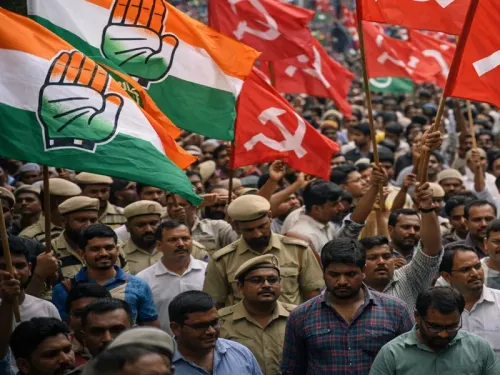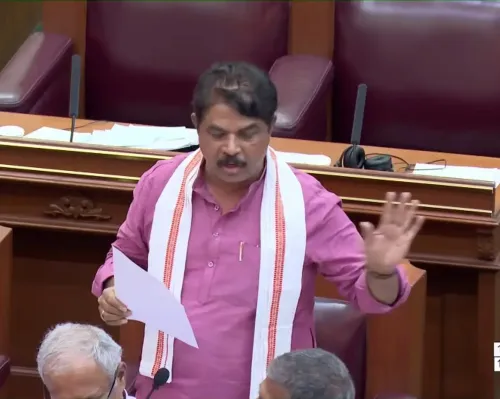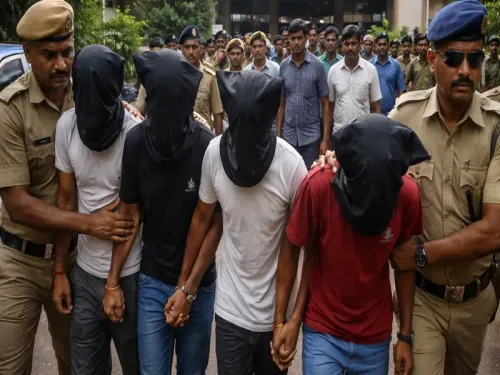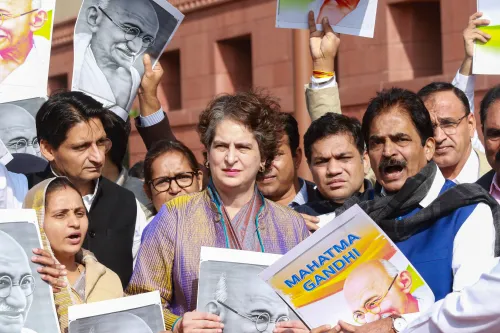CBI Should Leverage Technology to Tackle Modern Crimes: Ashwini Vaishnaw
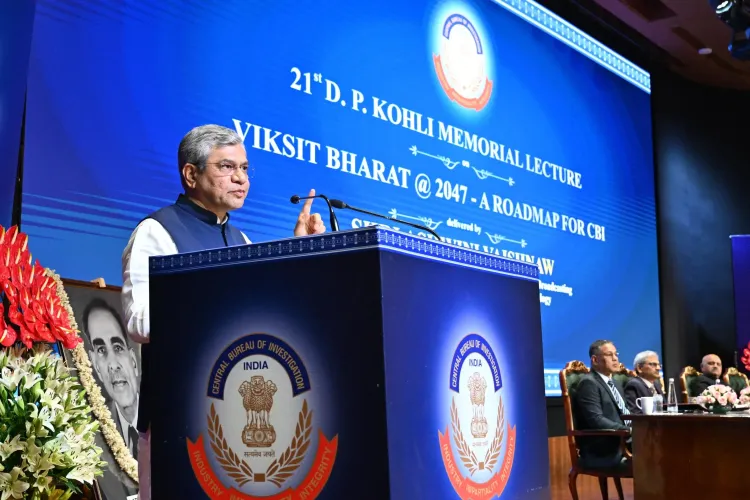
Synopsis
Key Takeaways
- Techno-Legal Framework is essential for modern crime.
- Collaboration between CBI and academia is crucial.
- Over 1,500 outdated laws have been repealed.
- New legal frameworks are replacing archaic laws.
- Viksit Bharat@2047 outlines CBI's future role.
New Delhi, April 1 (NationPress) Ashwini Vaishnaw, the Minister of Railways, Information & Broadcasting, and Electronics & IT, emphasized the importance of a strong techno-legal framework to combat emerging new-age crimes.
During the 21st D.P. Kohli Memorial Lecture on the occasion of CBI’s 62nd Foundation Day, Vaishnaw remarked, “In the face of challenges posed by deepfake technology and AI, the future of a functional criminal justice system depends on the integration of legal frameworks with technological advancements and institutional innovation.”
The Minister called on the CBI to set up cutting-edge Cyber Forensic Labs in partnership with academic institutions, stating: “Our educational institutions, scientists, and researchers possess extraordinary capabilities. These resources should be utilized by investigative agencies, legal officers, and government bodies to jointly develop technological solutions.”
Vaishnaw also pointed out the necessity for institutional frameworks that enable such partnerships and recommended that Ministries and Departments including MeitY, Department of Telecommunications (DoT), and Department of Science and Technology (DST) collaborate closely with investigative entities to co-create technologies essential for contemporary law enforcement.
He asserted that legal provisions alone are inadequate, advocating for a techno-legal approach to effectively tackle the challenges introduced by modern crimes and investigations.
During the ceremony, the President’s Police Medals (PPM) for Distinguished Service and Police Medals (PM) for Meritorious Service were awarded to 26 CBI personnel, recognizing their commitment and outstanding contributions.
The Minister underscored the necessity for a streamlined legal system, highlighting that India’s growth strategy emphasizes simplification by removing outdated colonial laws.
He stated that over 1,500 obsolete laws have been abolished, with new frameworks like the Bharatiya Nyaya Sanhita (BNS) and Bharatiya Nagarik Suraksha Sanhita (BNSS) replacing antiquated legal structures such as the IPC and CrPC.
“This process of simplification is facilitating the emergence of a more modern and efficient legal system,” he explained.
In his address on ‘Viksit Bharat@2047 - A Roadmap for CBI’, the Minister presented a strategic vision for the agency’s role in India’s advancement over the next twenty years.
Attendees at the event included CBI Director Praveen Sood, the Attorney General of India, the Central Vigilance Commissioner, the Director of IB, the Director of ED, and heads of NIA and Central Paramilitary Forces. Police Liaison Officers (PLOs) from other nations were also present.
Every year, the CBI pays tribute to its founding director, the late Dharamnath Prasad Kohli, and has been organizing the D.P. Kohli Memorial Lecture since the year 2000.


